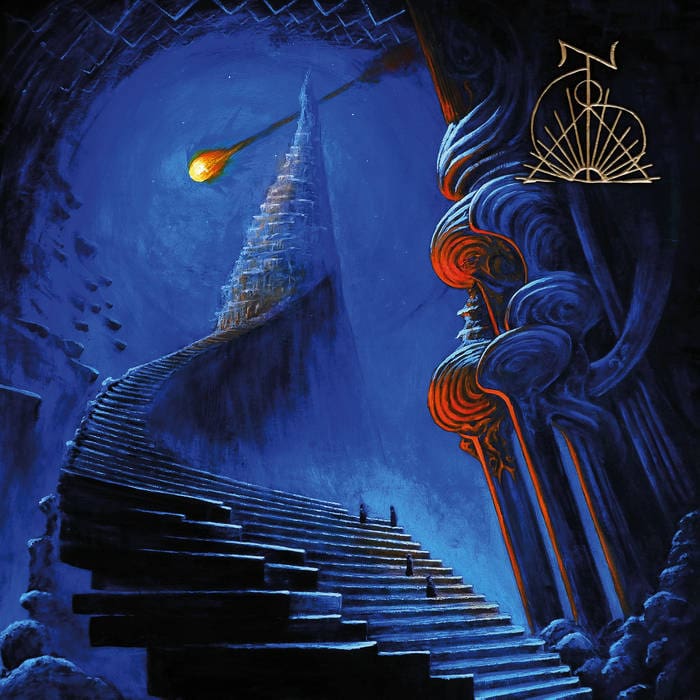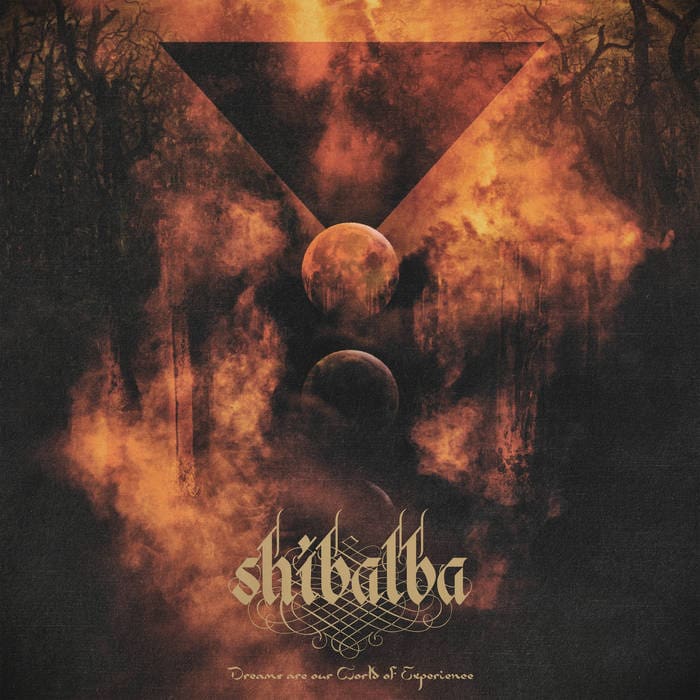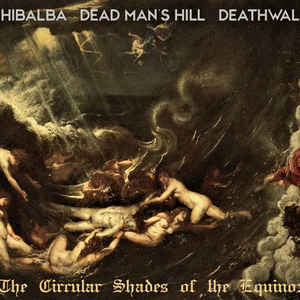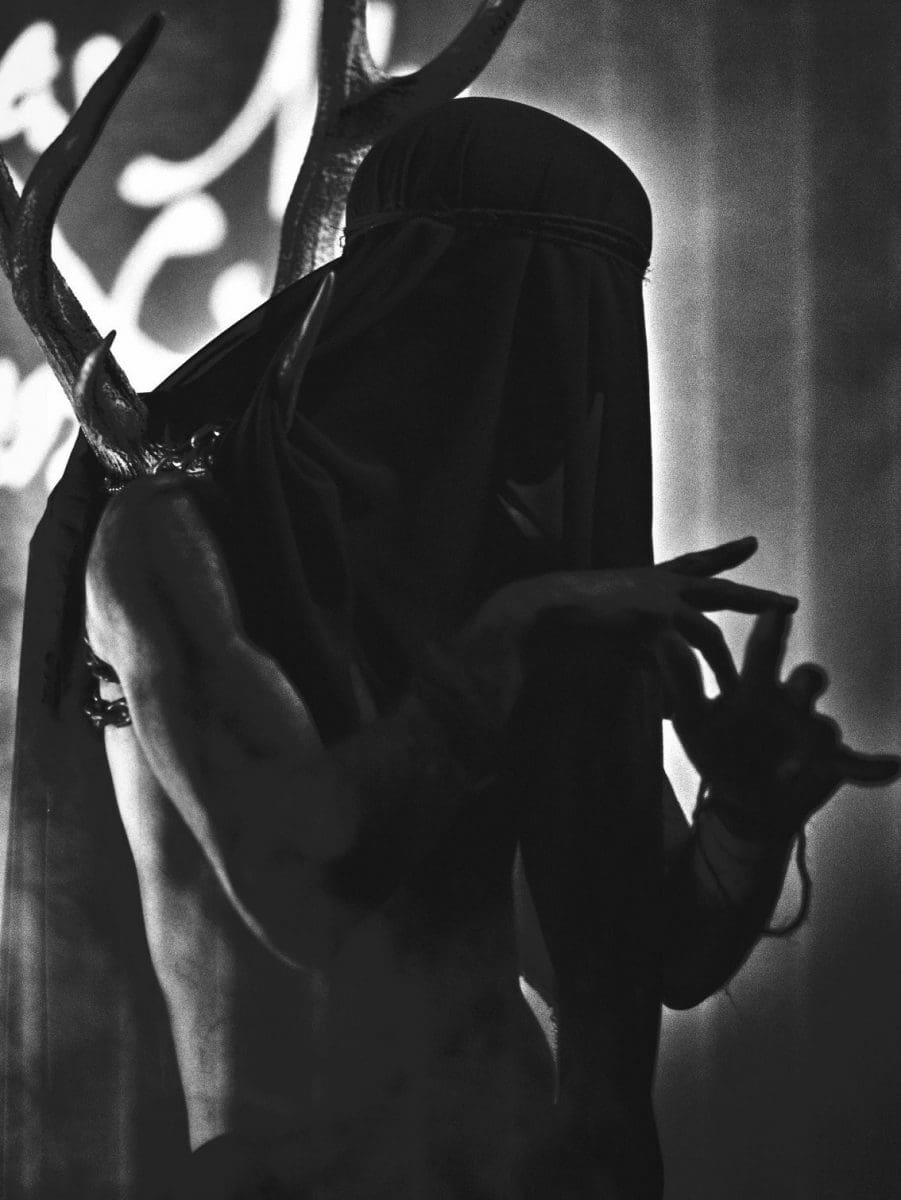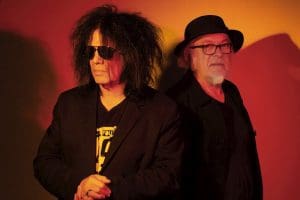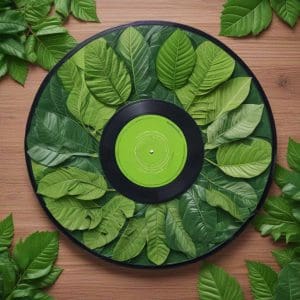‘Click Interview’ with Grande Loge: ‘Nothing Is Off Limits To Us’
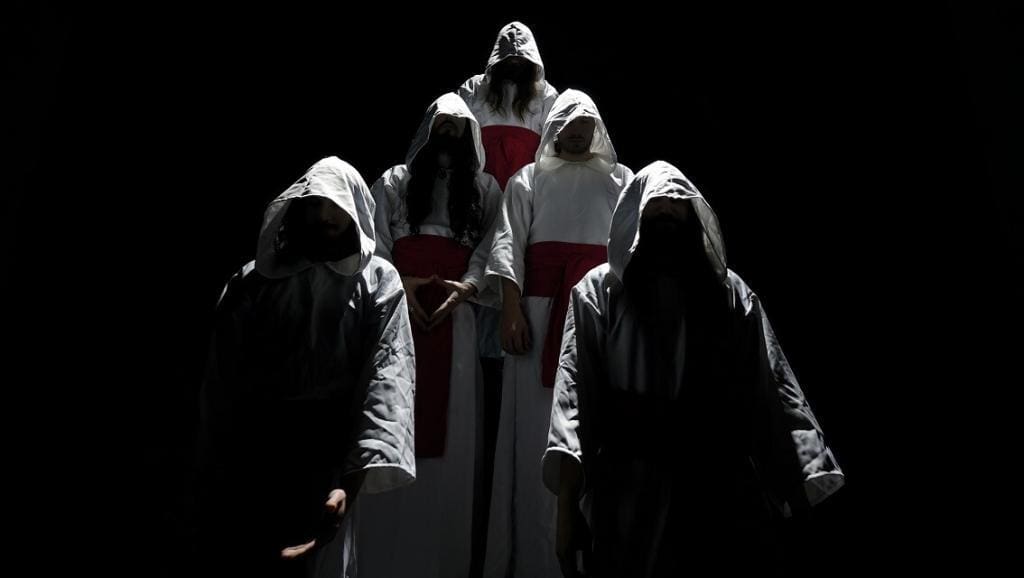

Grande Loge is a French project set up in 2017. By the end of 2020 they released their debut album “Mantras” on Cyclic Law. The work reveals a mix between clearly Ritual- and Dark-Ambient music styles. The songs have been composed by an impressive arsenal of traditional instruments, reinforcing the Ritual aspect of the sound, but still injecting an authentic touch to the composition. “Mantras” is a great and accomplished album, which incited to get in touch with ‘Nostra’ and ‘Flexor’.
(Courtesy by Inferno Sound Diaries)
Q: I noticed you guys have been involved with Black-Metal music before setting up Grande Loge. Tell us a bit more about your music background and how did this switch from Black Metal to Grande Loge happen? And what inspired you to set up this new band?
Nostra: We like a lot of music genres. In the past, we have played not only Black-Metal, but also Neo-Medieval music and even Funk for example. But yes, Black-Metal is by far the genre we have been most involved with, and for which we’ll always have particular affection.
Grande Loge was created at a time when our band Malepeste was quite active. It was during our rehearsals that we used to end our sessions with improvisations, which was the opportunity to try something different.
We had accumulated some interesting acoustic instruments for Malepeste’s Ambient interludes, but they had been playing a minor role until then. One day the idea of experimenting more freely with this acoustic material appealed to us.
Q: The name of the project might be a bit confusing because of the strong connotation with Freemasonry, but on the other hand the ‘ritual’ element between your music and Freemasons makes sense. What did you try to express by the band name and what have the experiences/confusions been so far?
Nostra: Initially I chose this name quite spontaneously, rather in reference to the Grande Loge Blanche that Helena Blavatsky imagined, because I thought that her syncretic vision of the different traditions could lend itself (in all modesty) to our music with influences that are quite distant from each other. Honestly, I did not think about Freemasons at all originally, but we are now systematically confused with them… We regularly receive messages from people fantasizing about Freemasonry and ready to do anything to become our disciples.
I imagine that these people send messages to every Facebook page that seems mysterious to them until they end up with a guru/pastor/marabout/life coach who will then be happy to take money from them. It really blows my mind…
Q: Let’s talk about your debut album “Mantras”, which has been released for some months now. What can you say about its production and the concept, which is clearly driven by ‘mantras’? And can you tell us something about the production of the vocals, which are really essential for the album?
Nostra: With other musical projects, we used to write the structures of the songs fairly precisely before we performed them on stage, but with Grande Loge it was different. At the beginning, almost everything was improvised, and it gradually stabilized during the performances. It’s particularly visible at the beginning of the album where we take a moment to settle into our songs before we get started.
Flexor: About the production of the voices, we consider them as instruments in their own right; they’re grafted onto the music and occupy their own place in the instrumentation. They are built up like a phat layer to finally form a large choir with different timbres and changing sounds. Because of their linearity and as the repetition progresses, they embody the concept of mantras in two ways: by the words they convey of course (apart from the phonemes assembled for their sound), but also by the cycle of their melodies, which creates a bewitching and meditative cocoon.
Q: The use of traditional/folk instruments has a real strong impact on the production. How did you come into contact with all these instruments and what makes their magic? In which way are the instruments part of the concept?
Nostra: Nothing is off limits to us. For “Mantras” we didn’t want to use synthesizers in order to preserve these ancient atmospheres, but later on why not? If tomorrow we find by chance a berimbau, a kalimba, a kotsuzumi or a hulusi and we manage to make something that creates an attractive atmosphere, that will be fine to me… For this we are lucky to have the famous world music shop Pick & Bock in Lyon. To be honest, what I do with my tanpura is probably disastrous for a real musician, but playing it with an intuitive approach gives me interesting sensations. That is what makes this music enjoyable for us, those feelings and the possibility of being able to accompany it with a strong emotional involvement; that’s why we insisted on recording in live studio conditions.
Q: I noticed there are several French projects (like Stille Volk, La Breiche, Camecrude, etc.) that share a similar passion for traditional instruments and ritual music. Do you feel related with other artists and/or festivals, happenings, and so on? What are your sources of inspiration?
Nostra: There are so many great bands in France that inspire me. I’ve been listening to Stille Volk for so many years, they’ve obviously influenced me in one way or another.
So in which ways do we feel connected? We’re isolated groups observing each other on the internet rather than being a large community. And for me many bands are simply unique and musically inimitable. It’s hard to find who else can play like Rosa Crvx or Gaë Bolg for example, so I don’t see us pretending to make art in the same way.
However yes, many events and festivals interest us. The bands you mention have performed at the Nuits Dark Ritual or at the L’Homme Sauvage festival. These are very good projects, we would like to play.
To mention also non-French musical inspiration, I think of bands like Heilung, Shibalba, Danheim, Nytt Land, Wardruna, Nyiþ and Emme Ya.
Q: The ritual aspect of your music also seems to be very important during live shows. What did you try to express on stage and how do you transpose the music into live shows? What are your plans for live performances now that live activities are finally possible again?
Nostra: Recording an album in our home studio (Studio Akashik) has allowed us to add extra vocals in post-production; but the way we play for the album, in rehearsal, or on stage are actually quite similar.
The decorum of the ceremonies are just a few tricks helping us to get into a proper and receptive state of mind, but yes it’s important. Without this state of gnosis our music would lose its strength.
Among the other projects, we’ve the recording of the next Malepeste album that we would like to finish for the end of this year. For Grande Loge, there’s a collaboration with the writers Oksana & Gil Prou coming up next year, a work of Sci-fi literature accompanied by our music. There is also a concert with Trientale in Chambery. Things are slowly starting up again…
Since you’re here …
… we have a small favour to ask. More people are reading Side-Line Magazine than ever but advertising revenues across the media are falling fast. Unlike many news organisations, we haven’t put up a paywall – we want to keep our journalism as open as we can - and we refuse to add annoying advertising. So you can see why we need to ask for your help.
Side-Line’s independent journalism takes a lot of time, money and hard work to produce. But we do it because we want to push the artists we like and who are equally fighting to survive.
If everyone who reads our reporting, who likes it, helps fund it, our future would be much more secure. For as little as 5 US$, you can support Side-Line Magazine – and it only takes a minute. Thank you.
The donations are safely powered by Paypal.

